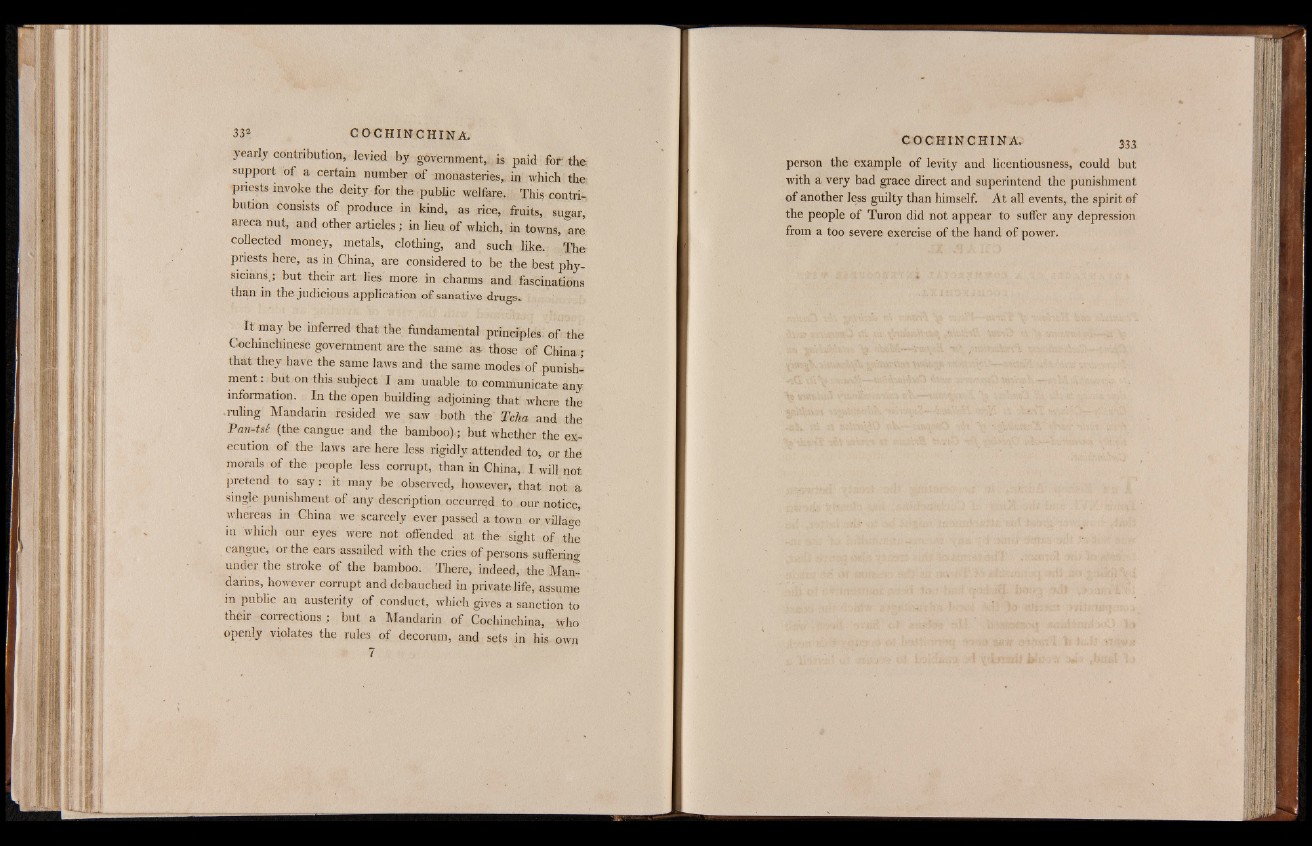
yearly contribution, levied by government,, is paid for the
support of a certain number of monasteries,, in which the
priests invoke the deity for the public welfare. This contribution
consists of produce in kind, as rice, fruits, sugar,
areca nut, and other articles; in lieu of which, in towns, are
collected money, metals, clothing, and such like. ’The
priests here, as in China, are considered to be the best physicians.;
but their art lies more in charms and fascinations
than in the judicious application of sanative drugs.
I t may be inferred that the fundamental principles: of the
Cochinchinese government are the same as- those of China ;
that they have the same laws and the same modes of punishment
: but on this subject I am unable to communicate any
information. In the open building adjoining that where the
.ruling Mandarin resided we saw both the Tcha and the
Pan-ts6 (the cangue and the bamboo).; but whether the execution
of the laws are here less rigidly attended to, or the
morals of the people less corrupt, than in China,, I will not
pretend to say : it may be observed, however, that not a
single punishment of any description occurred to our notice,
whereas in China we scarcely ever passed a town or village
in which our eyes were not offended at the sight of the
cangue, or the ears assailed with the cries of persons suffering
under the stroke of the bamboo. There, indeed, the Man-
darins, however corrupt and debauched in private life, assume
in public an austerity of conduct, which gives a sanction to
their corrections; but a Mandarin of Cochinchina, Who
openly violates the rules of decorum, and sets in his own
person the example of levity and licentiousness, could but
with a very bad grace direct and superintend the punishment
of another less guilty than himself. At all events, the spirit of
the people of Turon did not appear to suffer any depression
from a too severe exercise of the hand of power.